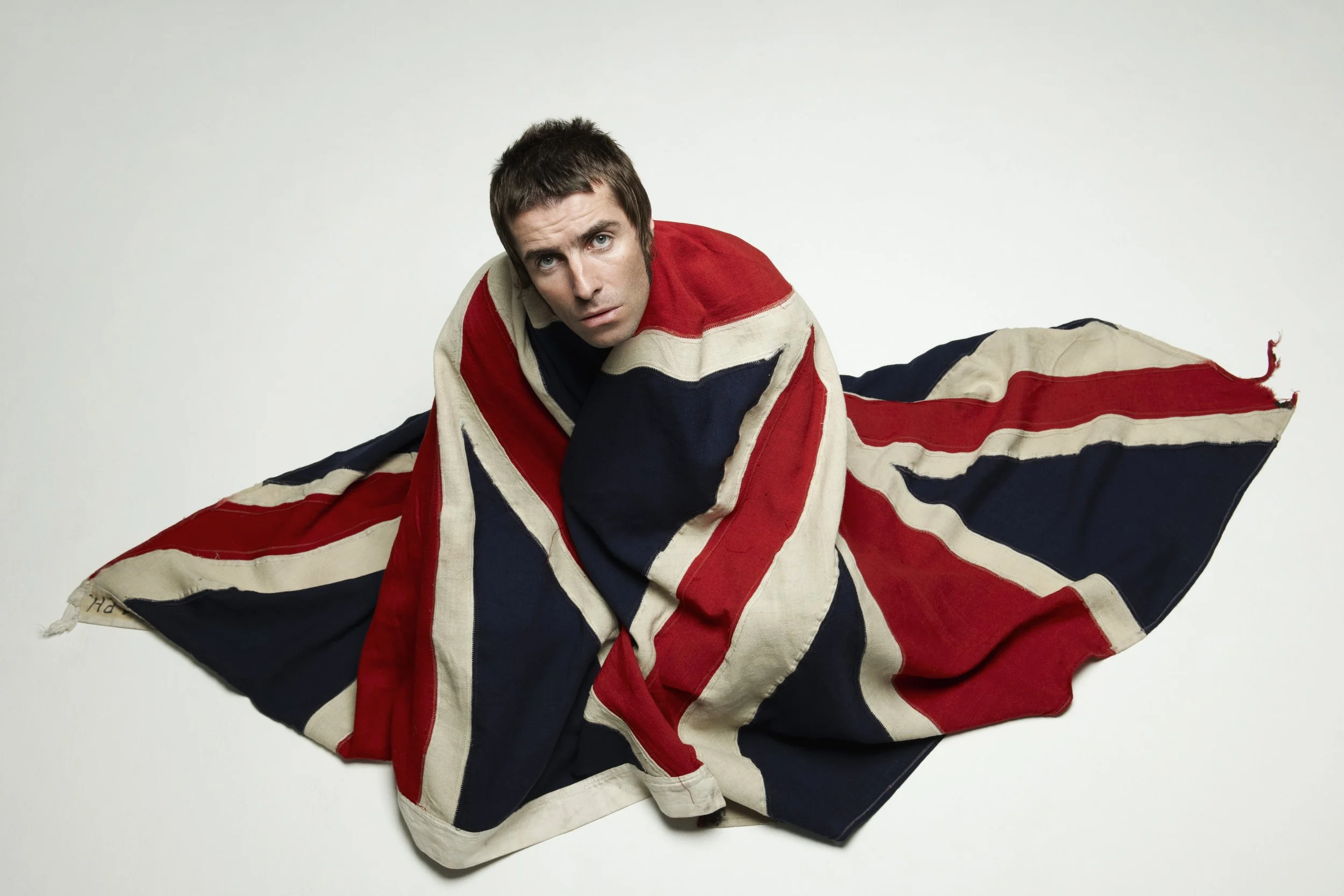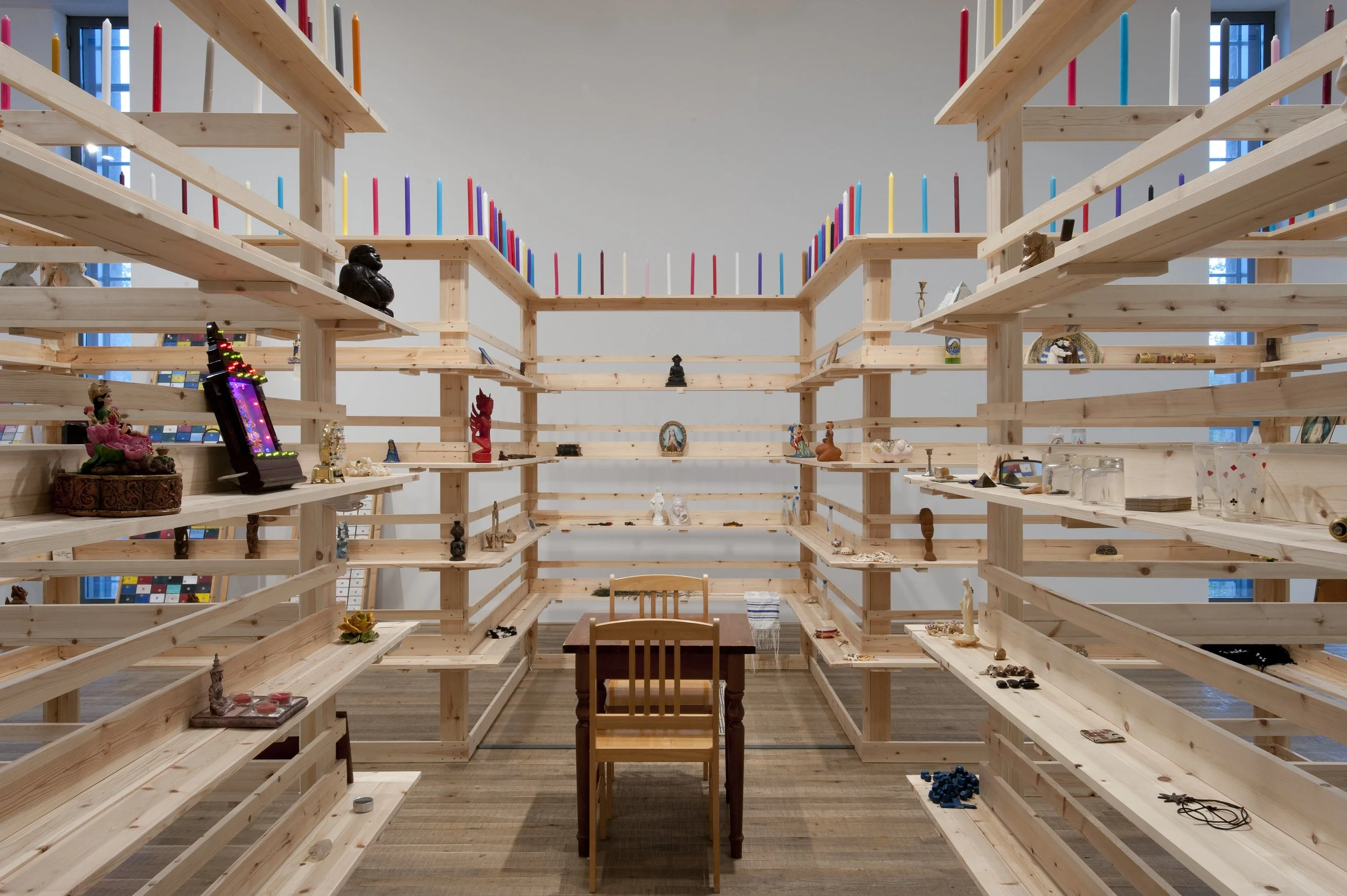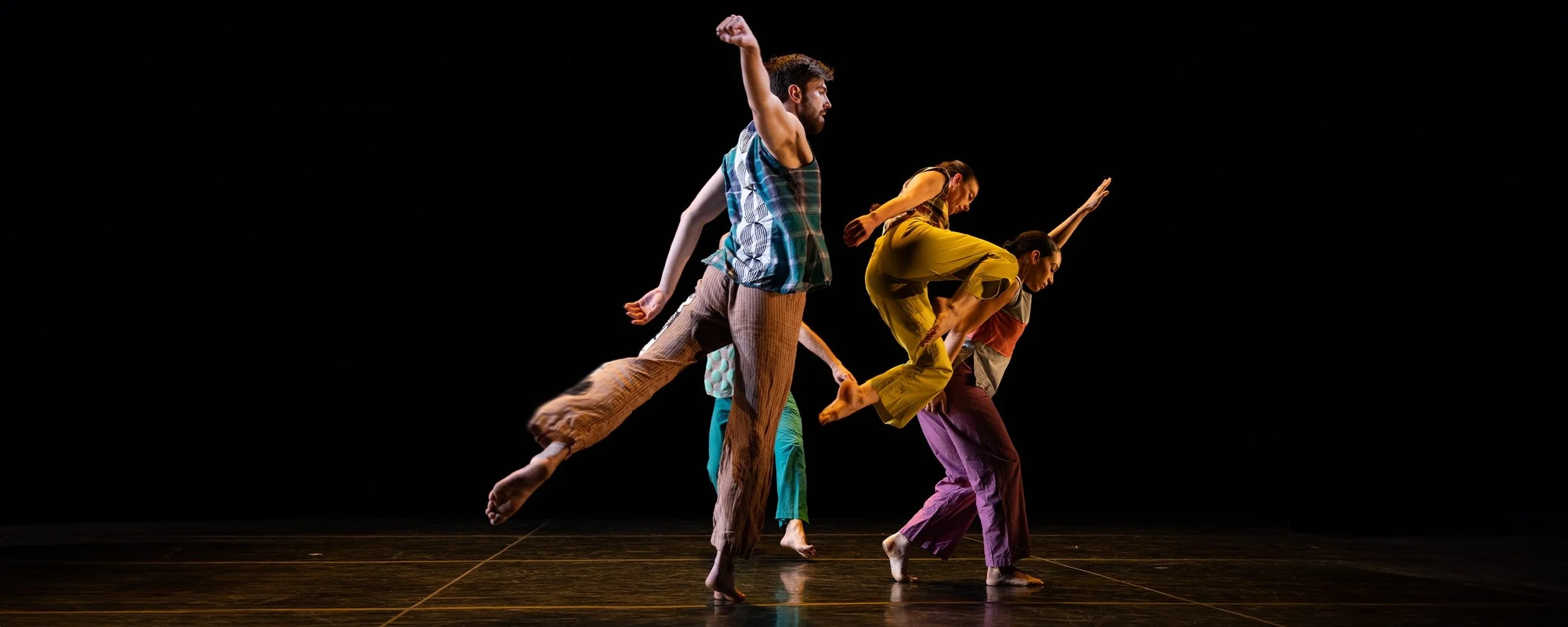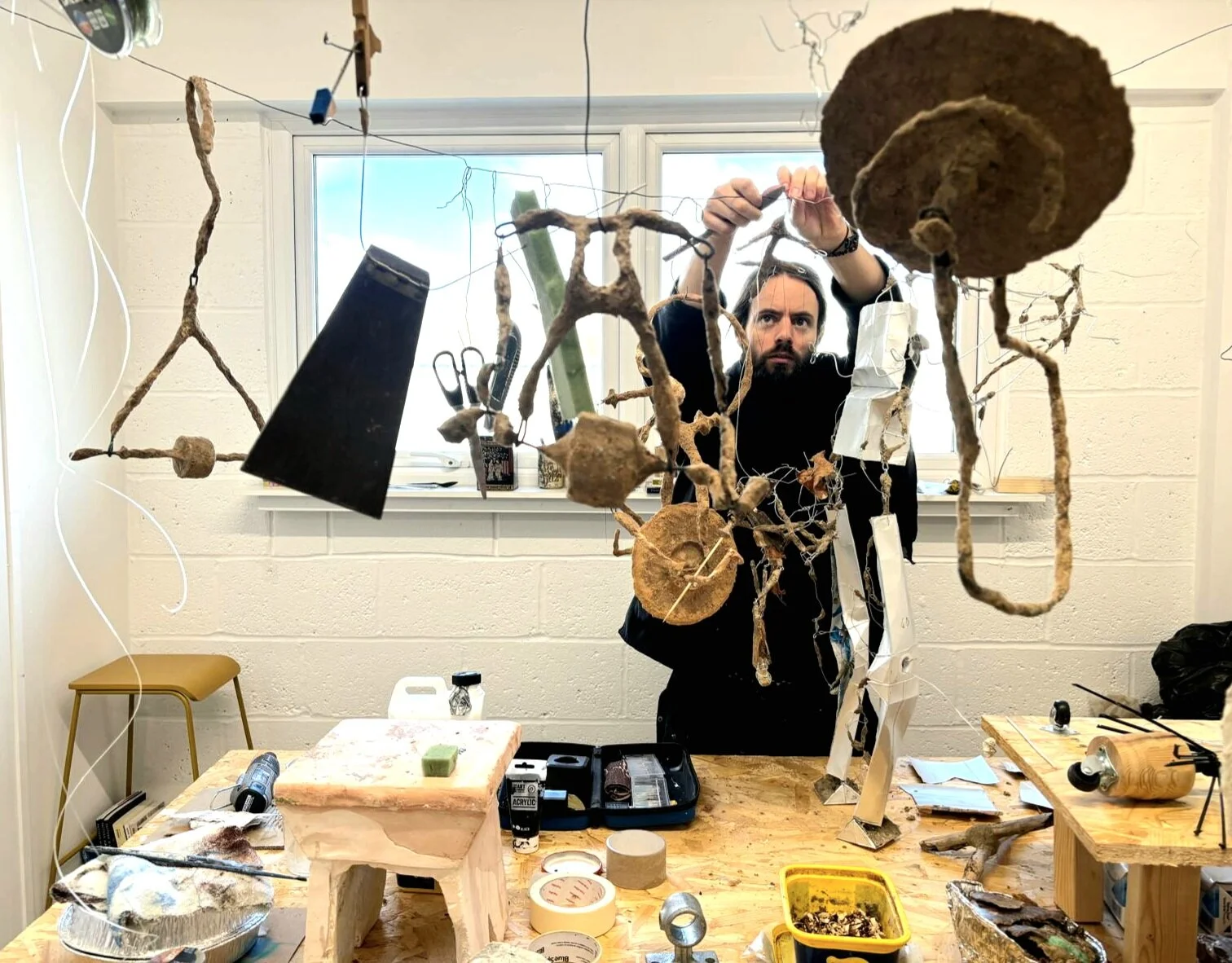Chunky Move 4/4, Southbank Centre review
Last week, we attended the UK Premiere of Antony Hamilton’s award winning piece 4/4 performed by Melbourne based Chunky Move, a leading Australian dance company, known for being on the boundary in the art form.
Having lived in Sydney and enjoyed the work of the Sydney Dance Company on multiple occasions, I realised unbeknownst to me I was already familiar with Hamilton’s work. In 2018, I attended a double bill featuring artistic director, Raphael Bonachela’s Frame of Mind alongside Hamilton’s Forever & Ever an award winning piece which fused together a killer mix of dance, techno, high fashion and vivid lighting. It was the standout performance of the evening for me.
Chunky Move 4/4, Queen Elizabeth Hall, Southbank Centre, 2024. Image credit Gianna Rizzo.
4/4 is a more pared-back production likely due the short studio development time and using only the parameters of what was already in the studio, which happened to be two staging bits used in the finished product. During the Pandemic, when Victoria briefly lifted lockdown, a few dancers were invited back to the studio for some training. The decision was made quickly to work with what was already in the room and not bring in any new ideas, this included small stage platforms. They were the initial prompt to develop the choreography thus creating an interesting parameter to work with. The use of these seemingly simple props was a stroke of genius. Working in and around the four platforms which glide manually powered by the dancers yet move seamlessly around the stage created interesting levels of drop and elevation. A clever tension is created between the larger space the smaller stages which works well in contracting and focusing the choreography which is seen early on with the two quartets. The inventive use of staging stuck with me long after the show ended.
The piece opens with a few dancers already on stage with two of the four stage platforms in place, as the audience meanders in feeling like we have arrived in their rehearsal studio. Lines of vertical writing on the front of the stage caught my eye but was unable to decipher them (neither could my daughter, I might add).
Chunky Move 4/4, Queen Elizabeth Hall, Southbank Centre, 2024. Image credit Gianna Rizzo.
With dance comes music - when I think of music used for contemporary dance, I sometimes think it feels closer to “noise”. The tapping and knocking sounds was very much noise in this instance. It took a while for the irritant of the “noise”, which felt like a small child tapping you on your shoulder to gain attention while you are trying to talk to someone, to abate. This type of sound is not for anyone exhausted from a week’s work (we were there on a Friday night). To be fair the credits in the programme are for Sound Design by Alisdair Macindoe. Overtime, like trying to block out the noise of construction, or traffic, the music begins to irritate less, and you begin to just notice the heavy beats that give instruction to the dancer’s movements.
The dancers are dressed in black streetwear style clothing of loose black trousers and a variety of tighter fitting tops. The beginning of the piece moved from the robotic movement you imagine in the inner workings of a clock, to more fluid sequences. The dancers are laser focused and tight to the music in a kind of 4/4 semaphore, slaves to the rhythm way.
Hamilton’s 4/4 is a serious piece of nerdy choreography. Back to those vertical lines of writing to explain why. – It transpires they are lines of numbers and a cheat sheet of sorts and part of Anthony Hamilton’s choreographic technique. He has developed a movement language/mode of choreographic creation, linked to lists of numbers creating a system where numbers correspond to specific movements, parts of the body, duration and spatial distance. Distance, timing and duration of movement is all relative. One can fit more or less movement into the same amount of time, and he continues to play with that.
Chunky Move 4/4, Queen Elizabeth Hall, Southbank Centre, 2024. Image credit Gianna Rizzo.
Hamilton’s interest in developing this system stemmed from his interested in popular dance and commercial dance, genres that tend to have very rhythmic relationships. He was formed by a diet of music videos with the likes of Michael Jackson and Paula Abdul which we all know and love. There is a pleasure to movements that land on easily perceivable beats. He became interested in how much more we can emphasise the rhythmic nature of the body separate from the sound. To this end he has at times simply started by using the sound of a metronome, where the music works as more of a timekeeper. There is clearly a direct correspondence between the movement and the sound on the beat hence the name 4/4. At the beginning of the performance I found myself counting in my head,…1,2,3,4 _ 1,2,3,4 as they danced. The piece begins with movement for every sound and then progresses to disrupting that with movement when you have vacant sound.
Admittedly during the post show talk when questioned about collaborating with staging, sound etc.. he confesses to being a control freak which makes a lot of sense with his choreography technique being so logical, mathematical and requiring precision focus and single mindedness to perform. The eight dancers are a selection of dancers with formal and informal training (such as crump). They come with diverse training histories and experiences which is not accidental, bringing with them a synergy to the choreographic process. 4/4 was an interesting insight into the choreography of contemporary dance which can fascinate without telling a story and leaves much to your imagination and interpretation.
Date: 8 November 2024. Location: Queen Elizabeth Hall, Southbank Centre, Belvedere Road, London, SE1 8XX.
The Southbank Centre has unveiled its Spring and Summer dance programme, featuring bold, innovative performances and international collaborations, with many artists showcasing their work in the UK for the first time. For details, visit southbankcentre.co.uk.
For those looking to enjoy a festive drink, the Southbank Winter Market is open with food and gift stalls, and Jimmy’s Fire & Fromage pop-up offers a charming winter outdoor space along the Thames, complete with roaring fires and a Raclette Bar menu.
Review by Natascha Milsom






































